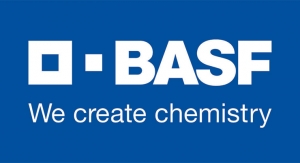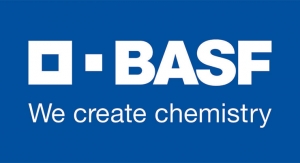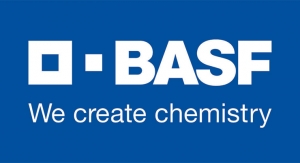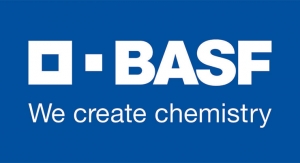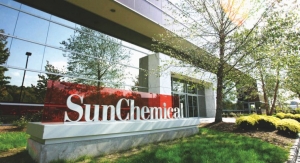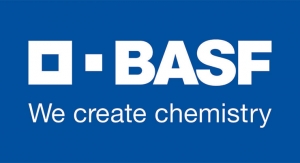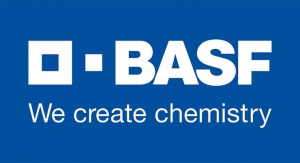07.26.16
The United States Environmental Protection Agency (EPA) recently conducted a midterm evaluation of light-duty vehicle greenhouse gas standards for model years 2022-2025, determining that the criteria can be achieved by relying primarily on advanced gasoline vehicles. The vehicles of the future must be more efficient and have a lower environmental impact than vehicles today.
As the world’s leading chemical supplier to the automotive industry, BASF is a key partner in efforts to reduce CO2 emissions from cars with combustion engines.
BASF produces a number of products to assist in the reduction of CO2 for the automotive industry, including:
· Catalysts: BASF develops and markets emission catalysts to help gasoline and diesel engines meet stricter exhaust standards, allowing for optimization of fuel economy and performance. The FWCTM four-way conversion catalyst combines the functionality of a three-way conversion catalyst with a filter on a single component saving weight and space, and increasing efficiency.
· Coatings: Twenty-five years ago BASF pioneered waterborne basecoats for automobiles. With this product, water replaces most of the organic solvents to permanently reduce emissions of volatile organic compounds. In addition, BASF developed an integrated paint process at the automotive manufacturing plant that reduces the length of the production line, reduces CO2 emissions by up to 20 percent, saves energy costs from 15-20 percent, and reduces material consumption.
· Engineering plastics: Lightweight construction is another key factor in ensuring sustainable transportation, today and in the future. Replacing metal parts with engineered plastic materials can reduce weight and improve fuel economy. New applications are constantly in development for today’s automobiles, which use about 15 percent various plastic materials. Reducing the weight of a car by 100 pounds cuts fuel consumption by about 1 percent. Additionally, engineering plastic solutions using BASF’s Ultramid® polyamides provide high performance under demanding conditions, with reduced weight.
· Polyurethane and specialty foams: BASF offers polyurethane solutions for use in virtually every part of the vehicle: components on and around the engine, in the vehicle interior and exterior, in electronic components, and structural applications. BASF’s polyurethane is used in a honeycomb structure along with corrugated paper and fiberglass to create lightweight trunk load floors, package shelves, and sunshades. This technology gained prominence due to its high strength and low weight.
· Lubricants: Energy efficient lubricants from BASF help decrease fuel consumption by significantly reducing friction and wear in transmissions and axles, while exceeding the expectations of fill-for-life durability requirements.
· Fuel additives: BASF’s fuel additives enhance engine cleanliness, protect the fuel system, and reduce the emission of harmful substances and greenhouse gases.
· Pigments: BASF also produces pigments that reflect infrared light. Integrated in car paint, windows or interior surfaces, these pigments help to keep the car cool in the sun, reducing the energy required for climate control.
· Binders: An increasing number of car manufacturers have started to use natural fiber composites for lightweight components such as door linings, storage compartments, and other car interior parts. BASF’s Acrodur® binder lends adhesive and strengthening properties to various types of natural fiber and facilitates environmentally friendly solutions for car interiors. Natural fiber composites with Acrodur can reduce weight by up to 20 percent over natural fiber polypropylene and up to 40 percent over injection molded ABS plastic.
· Battery materials: In addition to improving cars with combustion engines, chemistry contributes greatly to the electrified vehicle market. BASF produces advanced battery materials for lithium-ion batteries, which play a key role in determining battery performance, energy density, service life and safety.
As the world’s leading chemical supplier to the automotive industry, BASF is a key partner in efforts to reduce CO2 emissions from cars with combustion engines.
BASF produces a number of products to assist in the reduction of CO2 for the automotive industry, including:
· Catalysts: BASF develops and markets emission catalysts to help gasoline and diesel engines meet stricter exhaust standards, allowing for optimization of fuel economy and performance. The FWCTM four-way conversion catalyst combines the functionality of a three-way conversion catalyst with a filter on a single component saving weight and space, and increasing efficiency.
· Coatings: Twenty-five years ago BASF pioneered waterborne basecoats for automobiles. With this product, water replaces most of the organic solvents to permanently reduce emissions of volatile organic compounds. In addition, BASF developed an integrated paint process at the automotive manufacturing plant that reduces the length of the production line, reduces CO2 emissions by up to 20 percent, saves energy costs from 15-20 percent, and reduces material consumption.
· Engineering plastics: Lightweight construction is another key factor in ensuring sustainable transportation, today and in the future. Replacing metal parts with engineered plastic materials can reduce weight and improve fuel economy. New applications are constantly in development for today’s automobiles, which use about 15 percent various plastic materials. Reducing the weight of a car by 100 pounds cuts fuel consumption by about 1 percent. Additionally, engineering plastic solutions using BASF’s Ultramid® polyamides provide high performance under demanding conditions, with reduced weight.
· Polyurethane and specialty foams: BASF offers polyurethane solutions for use in virtually every part of the vehicle: components on and around the engine, in the vehicle interior and exterior, in electronic components, and structural applications. BASF’s polyurethane is used in a honeycomb structure along with corrugated paper and fiberglass to create lightweight trunk load floors, package shelves, and sunshades. This technology gained prominence due to its high strength and low weight.
· Lubricants: Energy efficient lubricants from BASF help decrease fuel consumption by significantly reducing friction and wear in transmissions and axles, while exceeding the expectations of fill-for-life durability requirements.
· Fuel additives: BASF’s fuel additives enhance engine cleanliness, protect the fuel system, and reduce the emission of harmful substances and greenhouse gases.
· Pigments: BASF also produces pigments that reflect infrared light. Integrated in car paint, windows or interior surfaces, these pigments help to keep the car cool in the sun, reducing the energy required for climate control.
· Binders: An increasing number of car manufacturers have started to use natural fiber composites for lightweight components such as door linings, storage compartments, and other car interior parts. BASF’s Acrodur® binder lends adhesive and strengthening properties to various types of natural fiber and facilitates environmentally friendly solutions for car interiors. Natural fiber composites with Acrodur can reduce weight by up to 20 percent over natural fiber polypropylene and up to 40 percent over injection molded ABS plastic.
· Battery materials: In addition to improving cars with combustion engines, chemistry contributes greatly to the electrified vehicle market. BASF produces advanced battery materials for lithium-ion batteries, which play a key role in determining battery performance, energy density, service life and safety.


